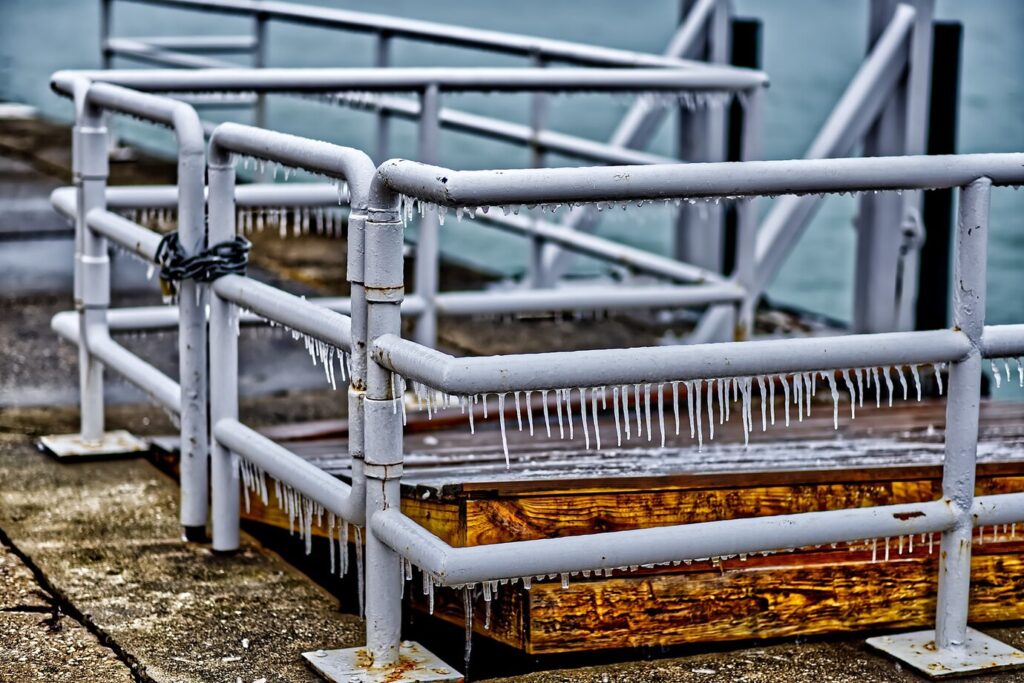Freezing temperatures can be a nightmare for homeowners, especially when it comes to plumbing. If water freezes inside your pipes, you could end up without running water—or worse, a burst pipe and water damage.
Why Pipes Freeze
Several things can make pipes more likely to freeze, including sudden temperature drops, poor insulation, little or no water flow, old pipes, and exposure to exterior walls. The good news? With a little preparation, you can help prevent frozen pipes before winter strikes.
How to Prevent Frozen Pipes
Here are some easy steps to keep your pipes from freezing:
- Keep your home warm: Set your thermostat to at least 55°F, even if you’re away.
- Insulate exposed pipes: Use pipe insulation or heat tape, especially in unheated areas.
- Let faucets drip: Running water, even a trickle, can prevent freezing.
- Seal up gaps: Close any cracks or holes around windows, doors, and places where pipes enter your home to keep out cold air.
- Open cabinet doors: Let warm air circulate around pipes under sinks and vanities.
- Drain outdoor faucets: Disconnect hoses and shut off exterior water valves before winter.
What to Do If Your Pipes Freeze
Sometimes, even the best precautions aren’t enough. If little or no water comes out of a faucet, or you hear odd noises when you turn it on, your pipes may be frozen. Here’s what you can do:
How to Thaw Frozen Pipes
- Apply heat: Use a hairdryer, heating pad, or warm towels on the frozen section of the pipe.
- Use a space heater safely: Place one near the frozen pipe but away from anything flammable.
- Turn on faucets: Once the pipe starts to thaw, running water will help melt any remaining ice.
- Call a plumber: If you can’t find the frozen section or the pipe has cracked, get professional help.
What NOT to Do
- No open flames: Avoid torches or propane heaters—they’re a fire hazard.
- Don’t force it: Hitting or bending the pipe can make it burst.
- Don’t ignore it: Frozen pipes can lead to costly flooding if left unchecked.
What If a Pipe Bursts?
If you notice pooling water, cracks in pipes, or bulging sections, a pipe may have burst. Here’s what to do:
- Shut off your home’s main water supply to stop more water from leaking.
- Turn off electricity if necessary to avoid electrical hazards.
- Shut off your hot water heater if the leak is from a hot water pipe.
- Call a plumber to assess and repair the damage.
Filing an Insurance Claim
If your home suffers water damage, contact your insurance provider. Most policies cover frozen or burst pipes, but some have specific conditions related to heating and maintenance. If you rent or live in a condo, check with your landlord or HOA.
To file a claim, you’ll need:
- Your policy number
- Details about the damage (date, description, etc.)
- Photos of the affected areas
Bottom Line
You can’t control the weather, but you can take steps to protect your pipes. Prep your home for winter now, and you’ll be ready for whatever the season throws your way.

